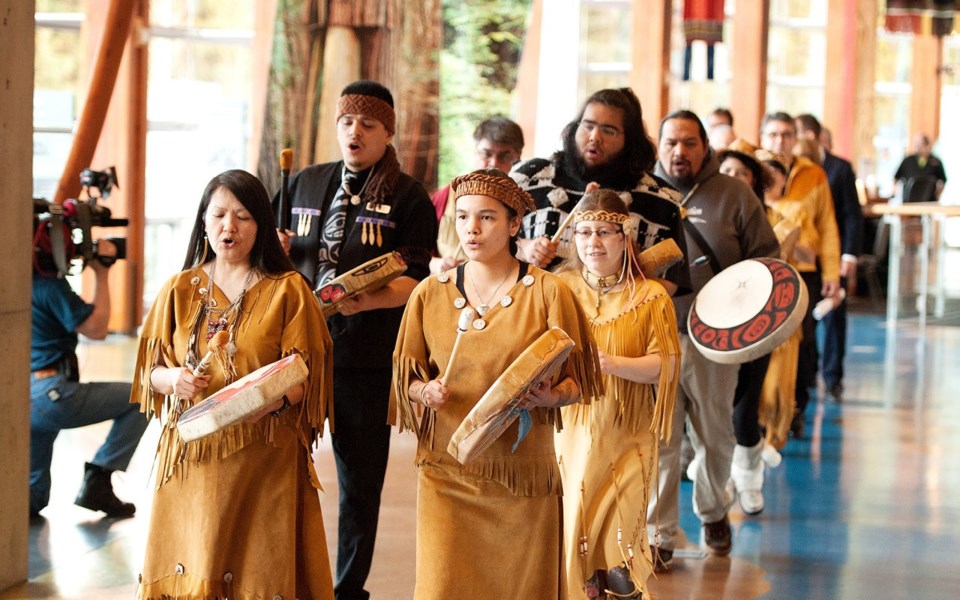The Lil'wat Nation and Whistler Learning Centre (WLC) are partnering on a proposal to potentially establish a First Nations Excellence Centre in Whistler that will train Indigenous students from across the country in the latest mental health therapies to bring back to their respective communities.
The initiative is intended to address the lack of mental health resources available in many First Nation communities. It's part of a broader effort at the WLC, in tandem with the Lil'wat, to knock down cultural and economic barriers that prevent some Indigenous people from living "a fruitful and productive life," according to a grant application to the Katz Amsterdam Foundation, headed by Vail Resorts CEO Rob Katz and his wife, bestselling author Elana Amsterdam. As reported in Pique last month, the foundation awarded the WLC $103,270 to help fund the centre, as well as a life and employment skills training program that will be developed by the Lil'wat to be offered at the WLC later this year.
Having the Lil'wat lead the development of the programs in a culturally appropriate way will be key to their success, explained Lil'wat Chief Dean Nelson.
"The big thing is this is not just a program, it's a partnership that is guided by First Nations and will be overseen by First Nations," he said.
"People have said they know what's best for us in how to do things, and it hasn't worked so far. So having us steer the whole thing and build capacity is probably the biggest thing, at our pace and with our values."
After completing a year-long course that will be divided between in-class and online instruction, students at the excellence centre will receive a diploma from WLC partner, the BC Institute of Technology (BCIT). Psychologist and WLC board chair Dr. Stephen Milstein said the goal is to establish the centre as a nationally accredited facility.
The life and employment skills program will include a series of workshops in areas like nutrition, daily active living, money and time management, conflict resolution, and more. Developed by Lil'wat members and BCIT instructors, initially the program will be led by a BCIT faculty member with the assistance of Lil'wat trainees. After that, the Lil'wat will administer the workshops, with assistance from BCIT.
Another component of the initiative is to develop a peer support worker group manned by paid Lil'wat members who will ultimately deliver the life and employment skills workshops. The group will be modelled after similar initiatives put on by Vancouver Coastal Health throughout the Sea to Sky.
"That's what we're looking at first, three teacher-type people that will learn first and will be able to teach their peers," said Nelson. "They will take on the learning and be able to communicate the needs of the nation and the people."
Milstein sees the program as a way to bridge the historical gap between Whistler and Mount Currie by giving the Lil'wat the chance to develop the skills needed to participate in the resort economy in their own way.
"Just like here, there are bright, intelligent people [in Mount Currie] whose potential has not been brought into the greater society. That needs to be done," he said. "On the economic end, look at our employee shortage. We don't have beds. Well, we have people [in Mount Currie] that have beds and need jobs. What are we going to do to get them and us together? Part of this project is to do that."
He also considers the broader initiative as a way to build mutual understanding between Whistler and Mount Currie and serve the goals of reconciliation that go beyond mere lip service.
"I believe there's not a lot of time for people to define, operationally, what reconciliation means. I think the success is going beyond that. I think 'reconcile' means that I'm going to sit down and learn from each other," Milstein said.
"Understanding is the biggest part of reconciliation," added Nelson. "[We need] people supporting the [program] but not really running it themselves. We've been through that already."




